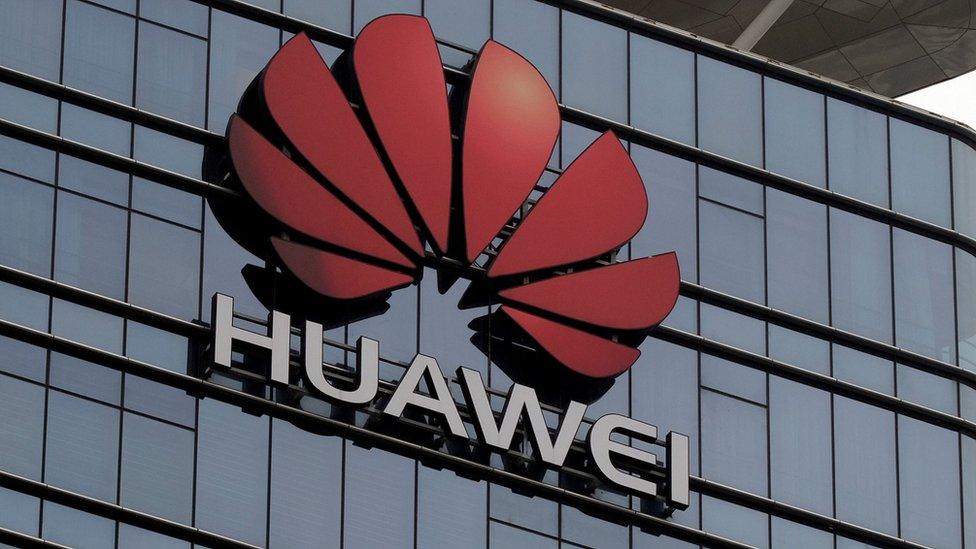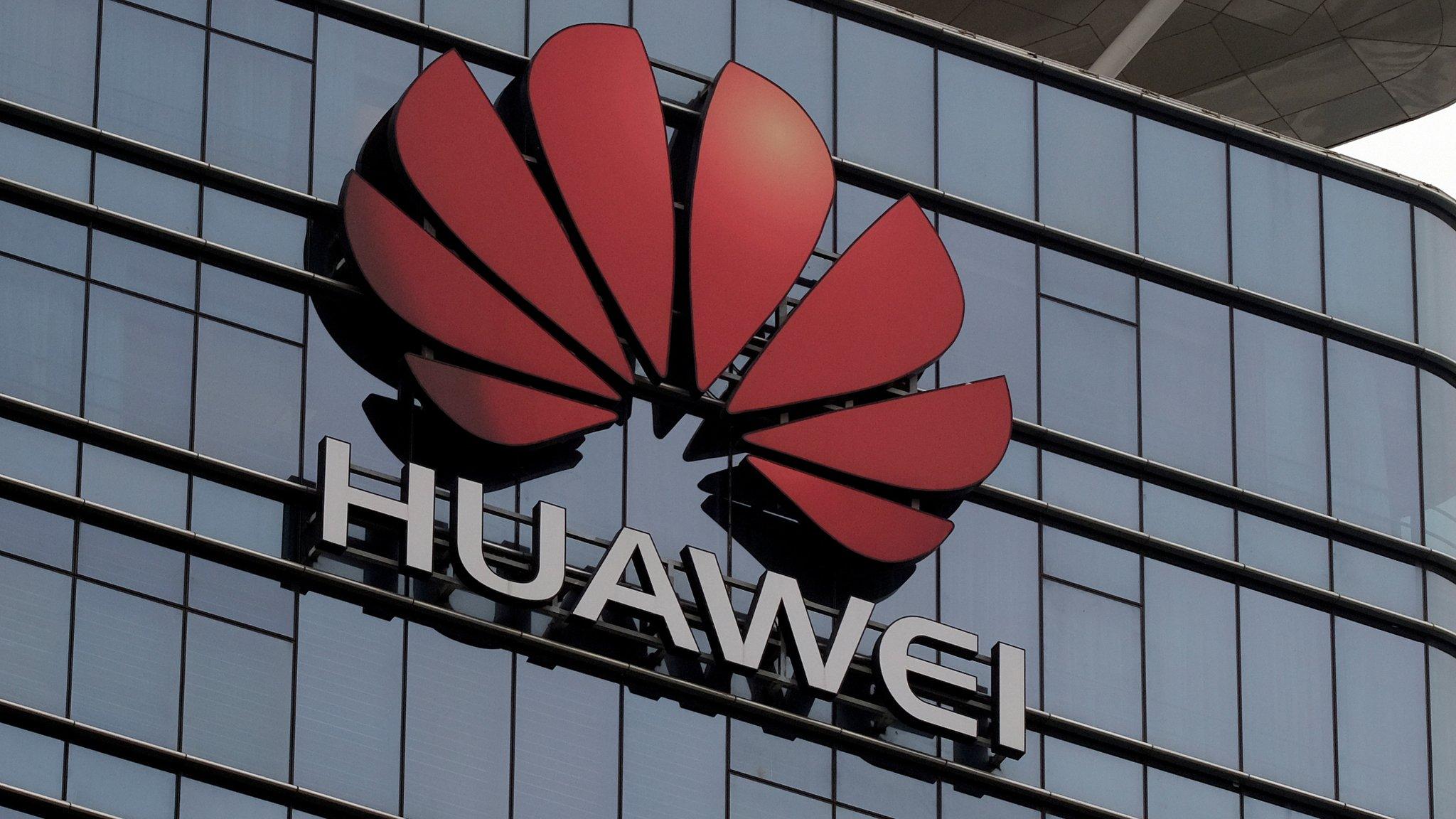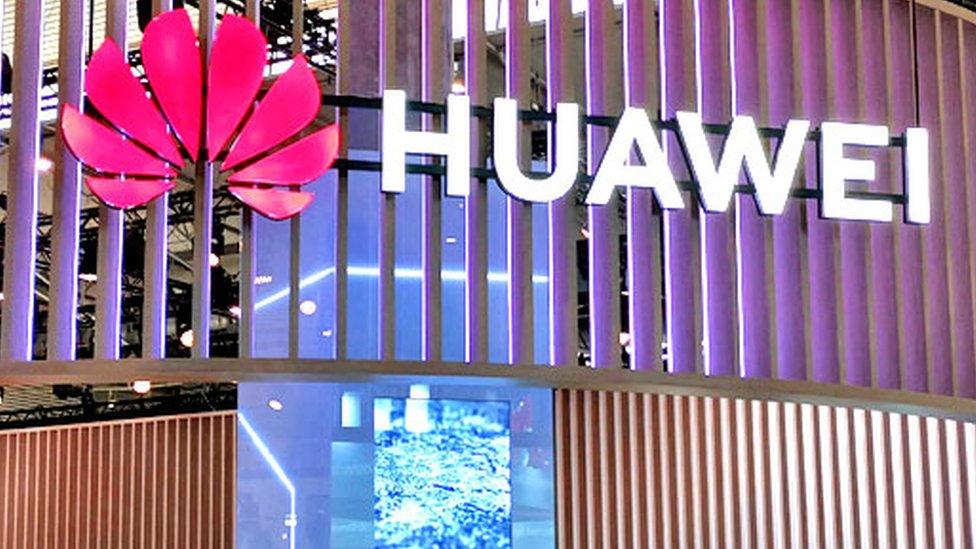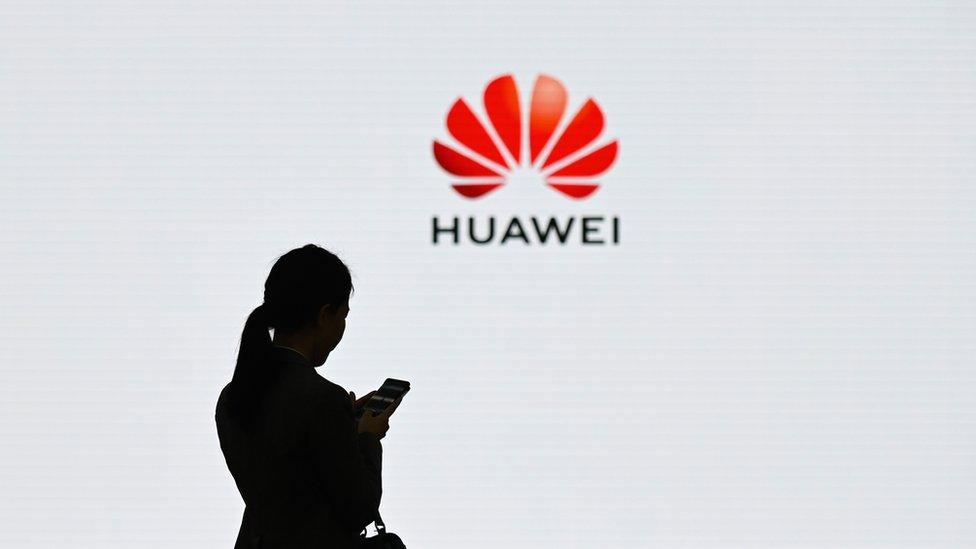Huawei: US official warns 'no safe level' of involvement with tech giant
- Published

The US has warned that its intelligence sharing with other countries would have to be re-evaluated if those countries use Huawei to build their 5G networks.
Senior US official Rob Strayer said any such role for the firm posed an "unacceptable risk" to security.
It has been reported that the UK might allow the Chinese telecoms firm into the non-core parts of its 5G network.
But opponents of the plan have raised concerns about Huawei's ties to the Chinese government.
Last week, a leak from the UK's National Security Council indicated the government had decided to allow the Chinese telecoms firm to have a limited role in bringing 5G to the UK.
The news provoked controversy, with reports several of Prime Minister Theresa May's senior cabinet ministers had warned against the move.
Emily Taylor from the Royal Institute of International Affairs explains what worries security experts about 5G.
The US expressed serious concerns at the time, since, along with Australia and New Zealand, it belives the Chinese firm is a security risk because of its ties to the state.
Responding to Mr Strayer's intervention, Mrs May's official spokesman said: "Our position has always been that where national security concerns arise in any foreign investment the government will assess the risks and consider what course of action to take."
China's ambassador in London said Britain should resist pressure from other nations, and that the company had a "good track record on security".
'Stakes couldn't be higher'
Mr Strayer, the deputy assistant secretary for cyber and international communications at the US State Department, said the US was letting other countries know that if they put "unsecure and untrusted vendors" into their 5G networks, "in any place" then it was "going to have to consider the risk that produces to our information-sharing arrangements with them".
5G is the next - and fifth - generation of mobile internet connectivity, promising much faster data download and upload speeds, wider coverage and more stable connections.
In an interview with the BBC, Mr Strayer said: "We think the stakes couldn't be higher with regard to 5G technology, because of all of the things we build out over the coming years on top of that tech.
"This is truly a monumental decision being made now... we think there's unacceptable risk in letting untrusted vendors provide that base infrastructure because they could disrupt any of those critical services.
"In addition we're concerned about the ability for a government that has the track record... that China has, to potentially have access to that massive increase in data, personal data in many cases, that could be used in nefarious ways."
Mr Strayer earlier told journalists even allowing an "untrustworthy" operator into the "edges" of the network created risks of espionage or sabotage.
He added: "We should be concerned about all parts of the 5G network. No part of the 5G network should have parts or software coming from a vendor that could be under the control of an authoritarian government."
It is understood telecoms operators who use Huawei equipment in their networks have been asked to attend a meeting with officials including Mr Strayer at the US Embassy in London on Tuesday.

Why do we need 5G?

5G promises great benefits but may come with higher security risks
5G is the next (fifth) generation of mobile internet connectivity, promising much faster data download and upload speeds, wider coverage and more stable connections.
The world is going mobile and existing spectrum bands are becoming congested, leading to breakdowns, particularly when many people in one area are trying to access services at the same time.
5G is also much better at handling thousands of devices simultaneously, from phones to equipment sensors, video cameras to smart street lights.
Current 4G mobile networks can offer speeds of about 45Mbps (megabits per second) on average and experts say 5G - which is starting to be rolled out in the UK this year - could achieve browsing and downloads up to 20 times faster.

What is Huawei?
Huawei was started by a former People's Liberation Army officer in 1987.
The company started out making equipment for phone networks and has grown rapidly to become a global leader.
It is based in Shenzhen, Guangdong, and is owned by 80,000 of its 180,000 employees.
More recently it has started making smartphones as well, and Huawei has now captured about 16% of the global market, making it the world's third-largest supplier after Samsung and Apple.
The US points to its founder's military background and potential interference from the Chinese government to argue it represents a risk to national security.
Australia and New Zealand have blocked telecoms companies from using Huawei equipment in 5G networks, citing security concerns.
But the company is keen to portray itself as a firm with no ties to the Chinese government. It says it prioritises safety and security and that at least some of the hostility is because the firm poses a competitive threat.

- Published28 April 2019

- Published26 April 2019

- Published25 April 2019
- Published21 March 2019
